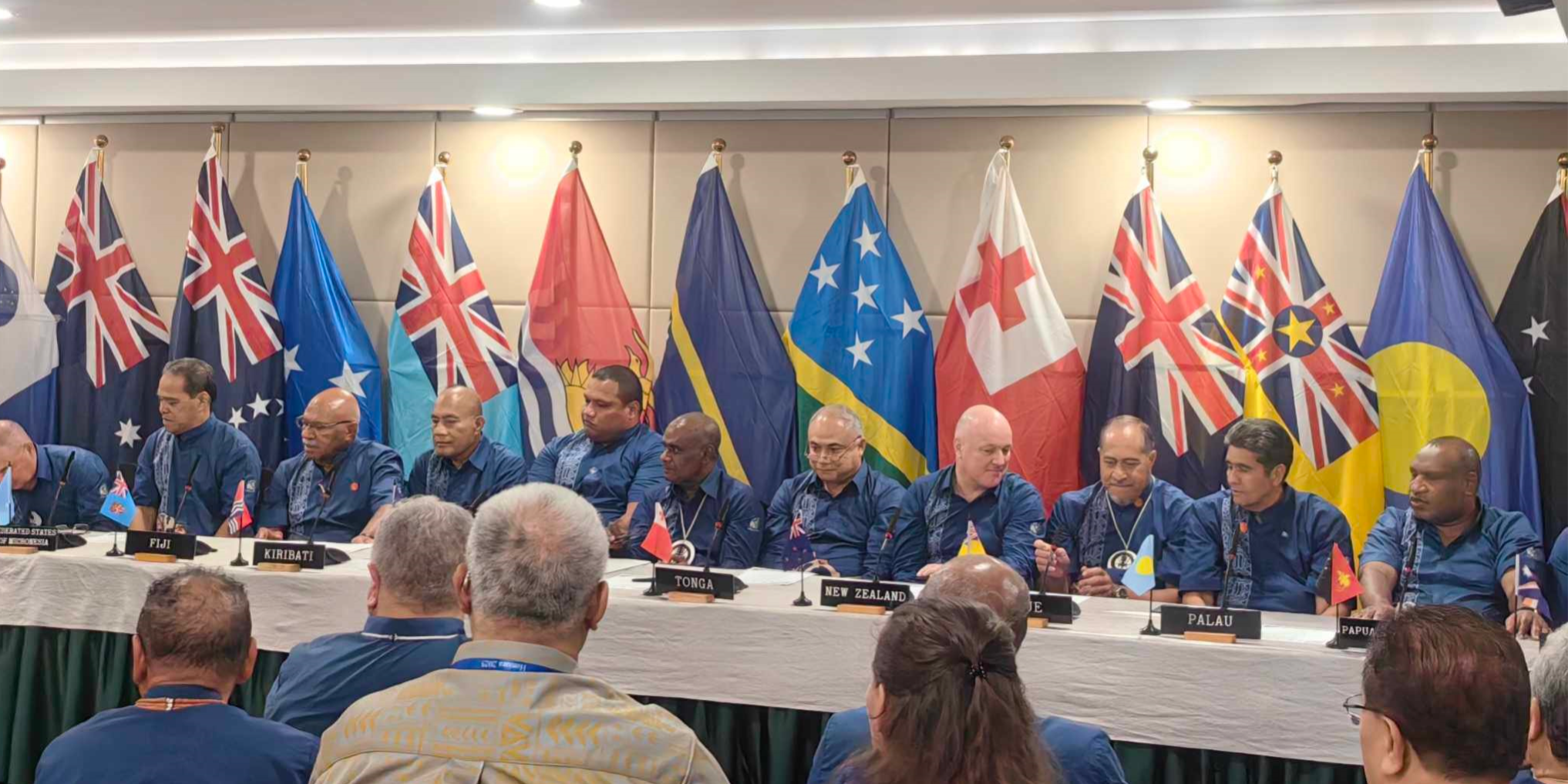FIFTEEN (15) members of the Pacific Islands Forum have signed the historical Pacific Resilience Facility (PRF) Treaty at the margin of the 54th Pacific Islands Forum Leaders Meeting at Heritage Park Hotel on Wednesday night.
However, only Tonga and Nauru have deposited instruments of the ratification for the agreement to establish the PRF with the PIF.
Six countries will need to deposit their instruments to PIF before it can be ratified by the United Nations.
Tonga Prime Minister, Aisake Eke, whose country will host the PRF, need the Forum family will collectively to act now to empower institutions and give life to their voice.
The Pacific Resilience Facility aims to raise USD 500 million by 2026 and USD 1.5 billion by 2030.
Its mission is to build resilience across the Pacific by supporting climate adaptation and disaster preparedness initiatives.
New chair of the PIF, Solomon Islands Prime Minister Jeremiah Manele earlier said the PRF is “designed by the Pacific, for the Pacific”—a regional mechanism that is owned, led, and driven by Pacific nations to address the growing challenges posed by climate change and natural disasters.
PRF general manager Finau Soqo told Radio New Zealand the idea was sparked by the difficulty of accessing the Green Climate Fund (GCF) – the world’s largest climate fund for helping developing countries adapt and limit greenhouse emissions.
“For some of our countries, we’ve had to wait for years to access it. So the response to that was, ‘Okay, instead of a club of 100 countries or 60 countries, maybe let’s have just ours, just for the Pacific’, and that’s the essence of it.”
So far, US$162 million has been pledged, with the goal of reaching $500m by the end of 2026.
“What the PRF treaty signing on Wednesday will do is trigger a series of processes, including a call on those pledges [and] an invitation for other sovereign investors to then formally pledge to fundraise for the rest,” Soqo said.
“Our investors are dipping their toes in the water, like they’re testing, so they’re coming in with single-digit contributions.
“But of course, what we really want to do is fundraise the whole $500m before we start granting to communities so that the fund can be sustainable.”
The money from investor countries will generate a return – similar to a superannuation fund – with the return being used to finance community projects.
“Out of every dollar that we earn in income, 90 cents will be distributed, 10 cents will be reinvested so that we can grow the fund,” Soqo said.
“It needs to be sustainable. We don’t want it to just disperse everything and then it runs out of money for community projects.”
Pacific Islands Forum (PIF) secretary-general Baron Waqa told RNZ THAT Australia needed to be more attentive in the climate space when he was asked by the media how he viewed the nation’s approach to global warming.
“Australia may be taking a little bit more time in addressing climate change, but I’m very positive at how things are moving.”
Waqa said Australia had also pledged AU$100m to the fund, the most by any country.
“They’re the top and that fund will assist climate vulnerable people, our people in the Pacific,” he said.
“These are the very small voices that are somewhere in the village or in some of the small islands.”
By Eddie Osifelo
Solomon Star, Honiara









